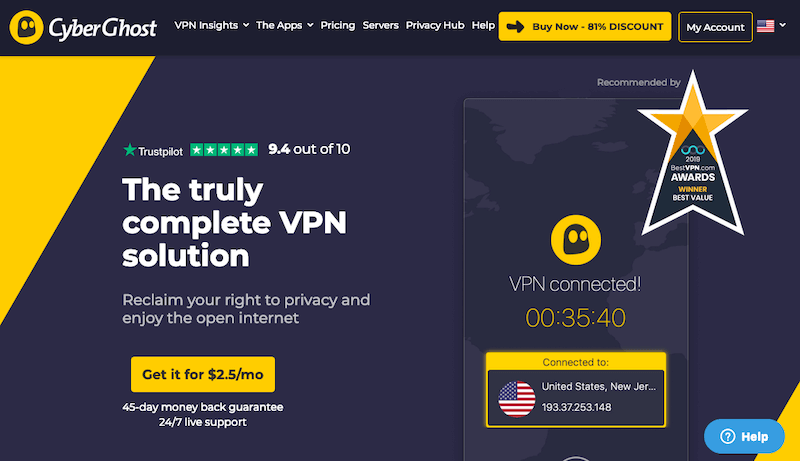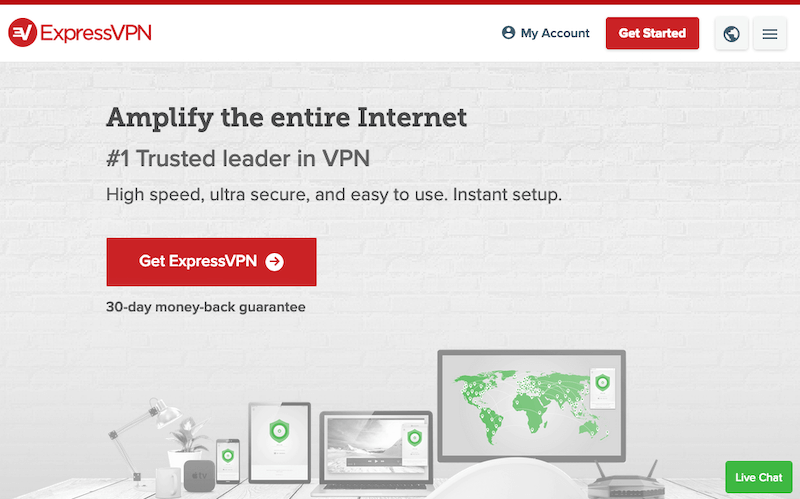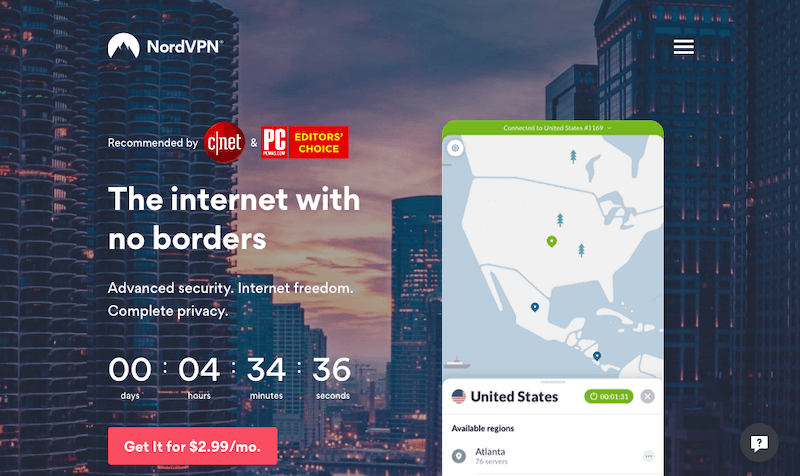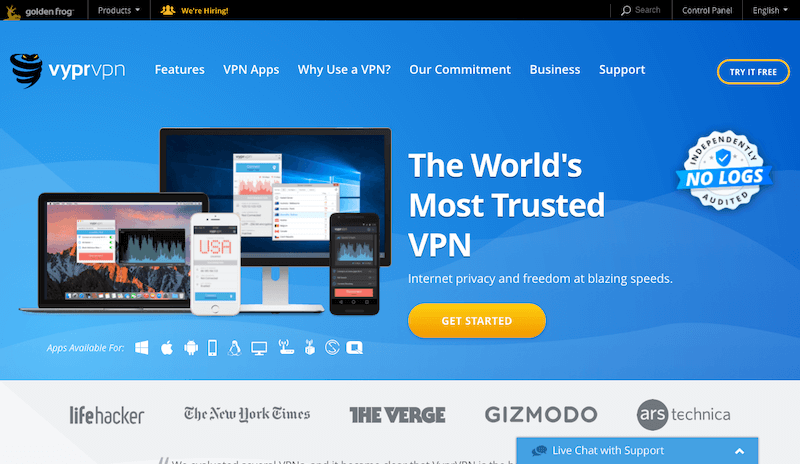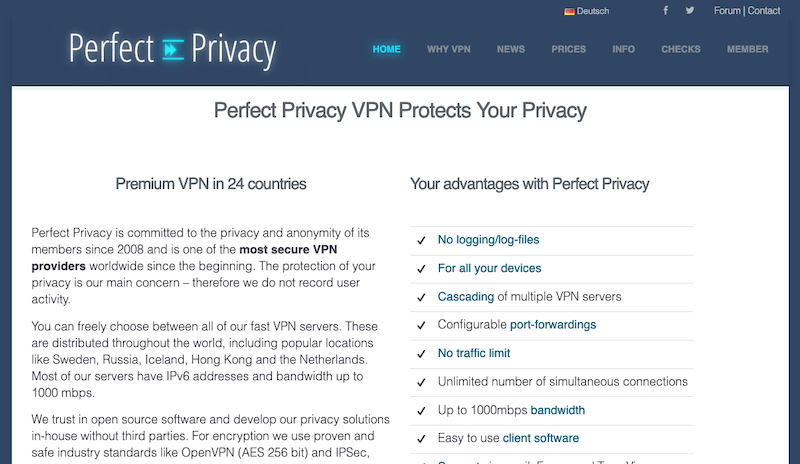The United States of America is the world’s largest economy and among the most powerful countries in the world. This country has had a vital role to play in a lot of technological advancements and discoveries.
The USA houses a lot of tech giants, including Google and Microsoft. Some of these corporations control a significant part of the technological ecosystem around the world.
The internet is at the core of most of the tech these days. It is essential for communication, and people spend a significant amount of their time on the internet, especially in developed countries such as the USA.
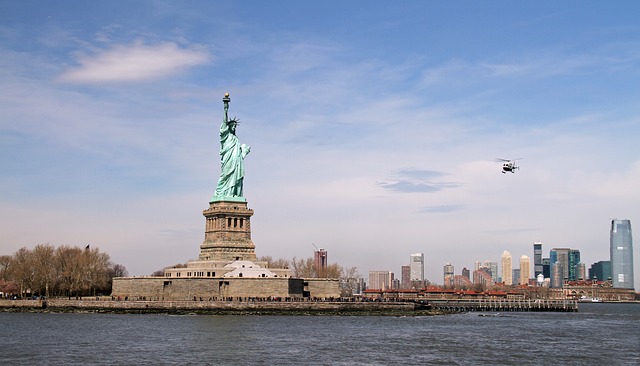
It is the government’s responsibility to keep the internet safe and accessible for its citizens. However, it is the government that US citizens need to fear the most when they use the internet in this country.
Certain modifications and revelations in the US in the past few years reveal that US government agencies are the biggest threat to the online privacy of citizens in the country.
Whether it is the net neutrality debate or the Snowden case, things don’t look very promising for online freedom in this country.
Even though the US constitution promises and freedom of speech and a lot of other liberties under the 1st amendment, government bodies have been using national security as a veil to compromise online privacy of citizens.
VPNs (Virtual Private Networks) seem to the best bet for people to keep themselves safe from this comprehensive monitoring and surveillance by government agencies.
VPNs encrypt users’ online traffic and mask their IP addresses to keep their privacy and data safe on the internet.
There are a lot of considerations that go into choosing a VPN service. In this article, we will help you know how to choose the best VPN for the USA.
We have also listed some of our recommendations if you are not much interested in going through details of the process.
Our recommendations
Here are our top picks for VPNs for the US listed in no particular order.
1. CyberGhost
More Info: Read Review | Visit Website
CyberGhost is among the top VPN services out there. It has vast server network which covers more than 60 countries of the world. There are more than 3500 servers in this network.
They have got so many servers that it allows them to dedicate these servers to specific tasks. You can choose servers for activities such as streaming and torrenting.
Torrenting servers allow one to download files using peer to peer network. Since ISPs will not be able to make out what you are doing on the internet, they will not be able to throttle speeds citing torrenting as a reason.
We don’t advocate downloading of copyright content using this method in any way. It is just that it has now become increasingly difficult to download legal stuff because of so many restrictions over torrenting.
CyberGhost is a Romanian VPN service, and the local government does not interfere with user logs or imposes any guidelines for their storage. CyberGhost don’t keep records of the online activities of their customers.
They have also got some advanced features such as data compression and smart rules to strengthen security even further. These features keep users safe from third-party monitoring and unsafe public networks.
You can make the most of your high-speed internet connection on this network as CyberGhost is known for incredible speeds even with all the heavy encryption.
2. ExpressVPN
More Info: Read Review | Visit Website
ExpressVPN is based out of the British Virgin Islands and contains all the necessary features that one can expect from a VPN service. Let us start with the element which is the most impressive on this service.
They have got servers in more than 94 countries, which is as impressive as it can get. No matter where you are on this planet, you can expect to have one of their servers nearby.
You will experience abundance in a lot of sections while using this service. They provide support for a wide range of platforms and devices, give enough protocols, and you will get a lot of payment options, including Bitcoin.
It displays latency for individual servers before connection so that you can know which server location will provide you better speed. There is a kill switch which will stop the internet connection if there is some issue regarding connectivity to the private network.
You will get split tunneling, which will allow you to keep some services out of the VPN safety net without exposing others to the open internet. Such feature may come in handy when you want to connect to your banking account or some other service which would want to see your original IP address.
ExpressVPN has got it all when it comes to keeping your internet connection out of reach of snoopers.
3. NordVPN
More Info: Read Review | Visit Website
NordVPN creates a secure fortress around your internet connection, which is virtually impossible to breach. They have got so many additional security and privacy features that you will never have to worry about your online privacy.
They are based out of Panama, which allows them to stick to no-logs policy, and safekeep the user’s privacy. It is critical that the VPN service you choose doesn’t fall under a 14-Eye jurisdiction.
NordVPN has got more than 5000 servers in 60 countries. The high density of servers in the network helps keep latency issues at bay. They provide some specialty servers which allow users to connect to the Tor network, download files using torrent, use dedicated IPs, etc.
Using a VPN with Tor network provides multi-level anonymity. Another way of making it impossible for others to find you on the internet is to use a double-VPN connection. It will route your internet traffic through two VPN servers, making it tough to trace the link back to you.
It secures your online traffic under AES 256-bit encryption. It is military grade encryption and will ensure no one can read the content of your traffic even if it gets compromised. It will take them hundreds of years to decrypt this encryption.
It supports a lot of platforms and devices and allows you to connect six devices simultaneously to the private network under the same account.
4. VyprVPN
More Info: Read Review | Visit Website
It is one more VPN service from Switzerland. It comes with the apparent advantage of Swiss jurisdiction, which allows it not to store information about the user’s online activity, and therefore, keep their privacy intact.
It is popular for the availability of Chameleon protocol. This protocol has exceptional obfuscation abilities, and it is capable of bypassing regional firewalls such as the ones of China and Russia. It has got other popular protocols such as OpenVPN and PPTP as well.
VyprVPN supports both 128-bit and 256-bit encryptions. It gives you the freedom to use an encryption type which is lighter and safe enough to use. You can experience faster internet after switching to 128-bit encryption. It happens without sacrificing safety.
The server network expands across more than sixty countries. It provides enough freedom to travel the world and keep yourself online activities private at the same time.
VyprVPN provides good internet speeds, and the inbuilt latency tests help you find the fastest servers for your region.
There is an internet kill switch to prevent any sensitive information from leaking on the internet in case the VPN connection malfunctions. There is Public Wi-Fi protection, which will keep your information safe when you connect to unsafe networks.
5. Perfect Privacy
More Info: Read Review | Visit Website
This Swiss VPN service is jam-packed with advanced features which will keep you safe from most of the invasive elements present on the internet.
Since they are not based in one of the 14-Eyes countries, they are not under any obligation to share your data logs with some government body or a third party. They follow strict no logs policy, which means they do not store any information about user’s online activity. Hence, there is no chance of losing it.
Features such as NeuroRouting, TrackStop, Cascading, etc. make this private network virtually impenetrable. NeuroRouting ensures that your encrypted traffic stays within the safety of the network for as long as possible.
TrackStop helps to keep ads and malware out of systems, and Cascading lets you connect to a maximum of four VPN servers at a time. These features take security and privacy to a whole new level.
Perfect Privacy makes sure that your data is protected by military-grade encryption, and their servers in the US will help you keep latency issues at bay as well.
They have got servers in more than 25 countries around the world with more emphasis on North America and Europe.
They even maintain a Warrant Canary statement which will let you know if they are being bothered by government bodies.
Internet in the USA
The United States of America has been a model country for the world for a long time when it comes to rights and freedoms. People in the USA can express their views and opinions out in public without fearing any kind of retaliation from concerned bodies.
The US constitution allows its citizens to exercise privacy, and it is government’s job to make sure there are no violations in this regard.
Privacy and freedom of expression might have a slightly narrower scope when the US constitution was written. Internet was not a thing back then, and privacy was thought of as something limited to boundaries of private properties.
Things have changed a lot since then, and there are so many more ways to express opinions. Apparently, there are a lot many ways to compromise someone’s privacy as well.
While the internet has become the most preferred avenue of people to express their opinions and voice their dissents, privacy violations have become increasingly common on it as well.
The violators can be anyone ranging from private parties to the government itself. It isn’t a big surprise when governments misuse their authority to take away online freedom of their citizens in countries such as China and Iraq.
But reports of such incidents happening in developed countries such as the USA are not healthy signs for people across the globe.
The past couple of decades don’t instill a lot of confidence in US citizens when it comes to online freedom and security. Things ranging from net neutrality issue to claims made by whistleblowers such as Edward Snowden, paint the US government and its agencies in a very authoritarian and dismissive tone.
There is no denying the fact that the online freedom situation in the US is far better when compared to countries like China and Russia. But it would be foolishness to ignore things not going in the right direction as well.
Rules are being changed or bent to benefit governments and enterprises, and reports of a breach of trust are getting increasingly common. There are some issues glaring at this country’s online ecosystem which need to be handled promptly.
Let us go through some of the cases which showcase how the situation got so worse.
The unprecedented power of spying agencies
Knowledge is power these days, and the USA is one of the most powerful countries. This country has got institutions in place which make sure they are one step ahead of all modifications that concern them.
We all know where this passage is leading. But things were not always the same. The US spying agencies were not so nosy. The events of September 11, 2001, cried for the need of a more robust intelligence system to prevent any more of such heinous attacks.
It is not as if the security and intelligence agencies weren’t competent enough before these attacks, but it became apparent that there is still a lot of room for improvement to keep citizens safe.
There were laws already in place which allowed government bodies to keep an eye out for any sort of activities related to espionage or terrorism. All they needed were some more methods to extend their reach.
Resources would have never been a problem for the US government. So, they ended up with institutions which have exceptional surveillance capabilities.
While the government focused a lot on strengthening its intelligence institutions, there wasn’t much emphasis on assigning responsibilities and enabling strict guidelines for the use of these resources.
All of us can appreciate that ‘with great power comes great responsibility.’ Government spying agencies exercised their power without much restraint, and together, they formed a mass surveillance system like never before.
They could access so much information that it was a piece of cake for them to pull out a majority of public and personal details of a person.
Laws such as FISA (Foreign Intelligence Surveillance Act) allowed them to monitor whoever they wanted without much of a hindrance. However, FISA was merely a catalyst, and programs such as PRISM were the actual tools used to collect data from the internet.
There haven’t been reports of any significant misuse of these capabilities against regular folks. But that can’t be used as an excuse for data hoarding on such a massive scale.
The government was collecting so much information about their citizens, and citizens never had a clue about it. It was the use of taxpayer’s money against him.
The more concerning thing was an absolute denial of any such data collection before these institutions got exposed.
Edward Snowden, a former NSA contractor, released a bunch of documents to various media houses which showcased how US spying agencies were collecting information about millions of citizens from multiple online and telecommunication resources.
Snowden wasn’t the first whistleblower who pointed towards illegal surveillance by the US government.
William Binney, who was a high-ranking NSA official, raised concerns on how a lot of taxpayer’s money was being spent on collecting information about them.
The revelations made by Snowden stirred up things at that moment. The US government had to give a lot of explanations to its citizens and its partner nations. The tech giants who were found aiding spying agencies saw some unrest among their customers and stakeholders.
But once the dust settled, it turned out that nothing much has changed. There haven’t been any noticeable changes in laws or functioning of the government.
Citizens are still clueless about the scope of surveillance from government bodies. The country is still more concerned about terrorism as compared to individual privacy and rights.
It may not be possible for one to persuade the government to change rules and laws. But as individuals, there is something of the essence for all of us in this case.
The first thing that you should take note of is to acknowledge that government bodies are more than capable of keeping an eye on your online activities. You can’t be sure of your privacy on the internet at all.
The other thing to learn is that all of us need to take online privacy into our hands since the government does not seem in a mood to do much about it. VPNs can be used to prevent spying agencies from making out what is it that you are doing on the internet.
It will help you remain anonymous on the internet and help preserve your identity. We will discuss how a VPN achieves this in later sections of this review.
Data leaks and trust breaches
If you think that it’s only the government which should concern you when it comes to your online privacy, then think again.
Large US enterprises and tech giants are not doing a great job of keeping your information safe as well. Incidents of data leaks and misuse of user’s data are getting more frequent.
We have got two cases to discuss here. Both these cases concern the safety of personal information of users. However, the cases differ in ways user data got exposed to foreign elements.
The first case is the Equifax data breach of 2017. Equifax is one of the largest credit reporting companies in the US. Big companies have vast data resources, and so did Equifax.
The breach reported affecting more than 145 million users. It means these many people were at risk of identity theft after this data breach.
The data involved sensitive information, such as addresses and social security numbers. This information could have been used for all kinds of frauds.
The only thing that Equifax did wrong, in this case, was not to have strong enough security measures. It is not much to expect some robust security mechanisms from a company if it houses this sensitive information of so many users in its servers.
They had a loophole, and cybercriminals exploited it. It is not just Equifax which fell prey to cybercrime, but the millions of users who had their personal information stored with Equifax.
The next case we would like to discuss would be of Cambridge Analytica and its use of Facebook data. Facebook has enjoyed a fair share of popularity among young and old in its prime. This social media and networking company has still got a healthy userbase which shares a lot of information about their personal lives on this portal.
The company once again came under the spotlight on the discovery of the use of personal information of more than 87 million Facebook users by Cambridge Analytica in the 2016 presidential campaign.
The company allegedly used this information of users to sway their opinions and vote for a candidate that the company wanted.
Later it was concluded that Cambridge Analytica was not able to leverage all this information in favor of their candidate anyway, and the company paid a hefty price for using such unethical means for reaching their goal anyway.
The more concerning issue was how they were able to get hold of so much data from Facebook.
Well, there was an app created to quiz people on Facebook. Facebook allows apps to access user information once the user permits it.
However, the collection and selling of this information are prohibited by Facebook. Makers of this application were able to find a loophole in Facebook’s API, and they collected user data and sold it to Cambridge Analytica as well.
Even though it is the user who decides to share information on Facebook, the platform allows him to choose the extent of privacy of this information. There are options to share information only with friends or not to share them at all.
People usually trust companies to stay true to their promise of keeping information private. However, cases like these suggest that it is better not to trust other entities with your personal information.
Facebook came into news again when a flaw in their algorithm, which stored passwords of millions of users without encrypting them, was discovered. It is not just Facebook which is good at putting user’s information at risk.
A lot of the Silicon Valley giants can be identified with one or two similar faults. Twitter also made a similar blunder and stored passwords in plain text.
It comes as a surprise when companies with so much sensitive user data are identified with such flaws.
Enterprises such as Google and Amazon enjoy a monopoly in their respective fields. These companies are often blamed for collecting user information without informing users, much like what spying agencies are doing in the USA.
All these scandals and cases make it difficult for a user to trust these companies with their information. Even a VPN will not be able to do much if a user is voluntarily providing his details to these companies.
Our only advice to you would be to use extreme caution while providing personal details on any such avenue and connecting to the internet using a VPN in every situation possible.
The net neutrality debacle
This debate has now been going on for more than a decade. Net neutrality is a simple concept. It is to provide a level plain field to all websites and services so that all of them have the same reach to customers.
The tech giants such as Google and Facebook have been advocating net neutrality along with general masses. It is unusual of enterprises and users coming in together on the same side of an issue.
So, the question is who they are fighting against. The answer is not the government or the FCC. It is the cable companies such as Verizon and Comcast.
Absence of net neutrality would not favor anybody more than these cable companies. These companies can charge services such as Netflix and YouTube more to stream their content at higher speeds and lesser latency to the users.
Or these telecommunication companies can charge users extra to get a higher speed internet connection to access their favorite services.
While these methods will pay more burden on pockets of users and services, telecommunication services will enjoy unnecessary control over the internet. They will be able to decide what websites you visit or what online services you use.
It will also make it extremely difficult for new businesses and services to grow as they may not have enough resources to purchase better connectivity for their website.
The USA has already had two battles over net neutrality where it ended up losing the second one. Telecommunication services are allowed to regulate internet speeds for services and users.
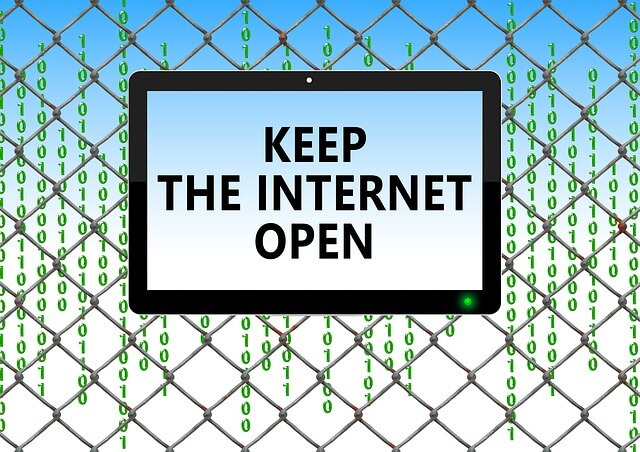
However, it has been more than a year since net neutrality was repealed in this country, and there hasn’t been a very significant effect on how people use the internet.
That does not mean things will remain the way they are. Telecommunication services enjoy a monopoly, and you never know when they may start abusing it.
A few recent advancements have come up with some ray of hope for internet dwellers and net neutrality advocates. The US House of Representatives passed the Save the Internet bill to try to reinstate net neutrality laws in the country.
It seems highly unlikely that this bill will turn into law under the current administration. Nevertheless, it is enough to remind people that the battle for net neutrality is not lost yet.
Why do US citizens need to use a VPN?
The previous section would have made it clear that the internet is not that safe of a place even in a county like the USA. Using a VPN might not be a solution to all the problems we discussed, but it can deal with the majority of them and leave you with lesser things to worry about.
There is so much that a virtual private network can do for you. Let us go through some of the uses of a VPN for US citizens.
To keep themselves away from government surveillance
There can be no threat more alarming to your privacy when compared to surveillance by government bodies. It extends way beyond the storage of metadata of users.
All of us are aware of their capabilities. They have enough tech and other resources that they can quickly draw out your whole life on a piece of paper. They may know what files are stored in your devices, have access to your personal photos, know the contents of your emails, etc.
Even if they say they are not monitoring citizens, it is difficult to trust them. We know that such things have been happening all along when they previously denied any indulgence in mass surveillance.
A VPN may not be able to prevent them from tapping into your social media accounts, but you can make other things difficult for them. For instance, a VPN will help you hide the contents of your correspondence with others, or it can help you to protect your online activities from them.
To avoid monitoring by ISPs
While the government agencies are trying to collect as much information about you as they can, you need to be watchful for data collection by your internet service provider.
If you are wondering why they would be interested in your online data, well, that’s because it is more valuable then what you think. There are so many businesses who would spend a fortune to know more about your online activities and habits.
They would have experts and computer algorithms analyze this data and then use the findings in their marketing and other strategies. It will help them serve you with products you are more likely to buy (even if you don’t need them.)
A private network will help you hide your online activities from ISPs, and you will be able to browse the internet without any fear of it being logged in servers.
Bypass geo restrictions and censorships
The citizens of the US get to enjoy more content without any censorships when compared to other parts of the world. Most people using VPN or smart DNS services in other parts of the world try to connect to US servers so that they can enjoy these vast collections in libraries of streaming services in this country.
However, viewers in the US are sometimes deprived of some content as well. They may find it a bit difficult to get their hands on some of the Japanese anime or other pop culture stuff from other countries.
It may happen that some documentary may be banned now and then as well. A VPN service will help you get access to these contents. You can connect to a server located in a country where the material is not restricted and enjoy it.
To download files via a peer-to-peer network
P2P file sharing or torrenting has got a terrible reputation among media houses and governments because of its use for piracy and sharing of copyright material.
Media houses have been to able to pressurize governments to take some stern actions against websites which provided torrent files for downloading. A lot of these sites have got banned, making it difficult for people to download pirated content.
However, they did not stop at this. Media houses have now got ISPs to throttle internet connections in case someone is downloading files via a peer-to-peer network. It means that even if you are downloading legitimate content, your connection will be slowed down.
We condemn piracy and appreciate all the steps undertaken by media houses and governments to curb it. But we cannot support the move to finish torrenting itself.
P2P file sharing is still a better method to download large files when compared to conventional methods. There are still people who would want to use torrent to download some useful content.
A VPN will allow you to download torrents as usual. ISPs will not be able to detect you downloading torrents, and therefore, will not throttle your connection.
To use public Wi-Fi or supposedly unsafe networks
Cybercriminals don’t leave any stone unturned when it comes to tapping possibilities of finding new preys. All of us like using free Wi-Fi connections at public places such as the ones available in cafes and airports.
These networks offer a free internet connection but not a safe one. There might be someone sitting next to you trying to get a hold of data packets transacting through that network. This person might be able to intercept your online activities and get a hold of some of your sensitive information.
You can always use a VPN service when connecting to such unsafe open networks. It will obfuscate all the information that you transmit using this network, and no one will be able to make out what is encapsulated inside that encryption.
While traveling to foreign locations
There are more than one reasons to use a VPN service if you are planning to travel outside of the USA.
First of all, it will keep you safe from all the free Wi-Fi networks that you might use throughout your journey. Nothing can be more awful than losing your personal information on foreign soil.
Another advantage of having a VPN in a foreign location is that you will not miss any of your favorite shows or movies because of censorships. A virtual private network will allow you to access any restricted websites in that country as well.
There are countries which have blocked sites such as Google, Facebook, Twitter, etc. You will be able to access all of them when connected to a private network.
You can set up a VPN such that it redirects your internet traffic through your home network. This way, you will be able to access all your locally stored files and even play games on the same LAN as you do in general.
Get across university and college firewalls
Educational institutions can be a bit conservative at times. They don’t like their peers to witness sites and stuff which might be a bad influence for their young minds.
It is alright for them to be concerned about what students do on the internet, but some of these restrictions can be authoritative at times. They may end up blacklisting and banning sites which are not harmful to students.
Instead, those avenues might be necessary to introduce students to more perspectives for their all-round development.
You can access such blacklisted sites in campuses through a virtual private network. It will let you access a blocked site and keep you anonymous at the same time.
Prevent others from monitoring your VoIP phone calls
VoIP (Voice over Internet Protocol) phone calls have made lives so much more convenient for people across the globe. However, a person with the right equipment and technical abilities can easily eavesdrop on your calls.
It is needless to mention the consequences of such a breach. You may end up leaking some confidential information about your business or your conversations with your loved ones may not remain that personal anymore.
Most VoIP services claim that they encrypt traffic during a call, but evidence suggests it is still not a very tough task to compromise these calls.
A VPN will not only help you secure these calls, but it will also allow you to make VoIP calls in regions where they are not permitted.
Prevent others from tracking your research back to you
You may be in a line of work which requires you to do a lot of online research. You may be a journalist trying to get at the other end of a news story or some analyst who wants to assess policies and methodologies used by competitors.
Well, you may end up leaving some online footprint during your research. It may let concerned parties trace the traffic back to you. There is a high probability that you would not want this to happen in most cases.
If you use a VPN while researching, then a trace-back would only lead to VPN servers in the location which you chose to connect to the internet. It will be a dead end for them, and you would be able to preserve your identity.
Just to enjoy some privacy on the internet
One of the most obvious and logical reasons to use a virtual private network is to exercise your right to privacy.
No one should be able to collect information about you or know what you do on the internet without your permission or knowledge.
Even if you don’t have anything to hide, others should not be allowed to snoop into personal affairs and a VPN service can help you ensure just that.
How to choose a VPN for the USA
Let us now go through some of the things you need to keep mind while getting a VPN for the USA. There can be other factors which you may take into consideration, but these should not be missed at any cost.
We have not discussed pricing in this section as it is highly volatile in most cases. You may get the subscription for the same service for surprisingly different costs at different times of the year.
The jurisdiction
All of us like stuff made in America, but things need to be different when it comes to VPN services. Make it a rule of thumb to not subscribe to a VPN service based in the USA.
American laws and privacy don’t seem to go hand in hand. So, a company supposed to follow the rules of this country will not be able to do much to keep your information private if the government decides against it.
There are data retention laws which allow government bodies to access your data when needed. There is a group called 14-Eyes countries which network with each other and share intelligence reports related to online surveillance among themselves.
It is needless to mention that your VPN service should not be based in any of these countries. The USA is also a part of this group.
Make sure that the country of jurisdiction has strict privacy laws and does not mandate services to maintain data logs of their customers.
Protocol and encryption
The two things which will help you stay safe from online monitoring and surveillance are protocol and encryption.
When you use a VPN service, all your online traffic is first encrypted, and then routed to VPN servers under secure protocols.
These protocols prevent outsiders from intercepting your connection and knowing about your online activities. Even if they are somehow able to get through the protocol, the encryption will not let them interpret any of your data.
It is therefore necessary that your VPN service has got strong encryption and protocols in place. Most VPN services provide AES 256-bit encryption these days. It is the best encryption available and virtually impossible to penetrate.
For protocols, OpenVPN is considered to be the best. It takes care of both speed and security. VPN services may come with other protocols as well. Some of them may even have proprietary protocols.
However, you need to make sure it has OpenVPN as an option.
No-logging policy
All through this article, we have been telling you how government agencies and ISPs collect your data, and you need to stop that.
When you use a VPN service, your data stays safe from these third parties, but you can’t forget that the VPN service now knows about your online activity.
You need to make sure that the VPN service you choose doesn’t maintain logs of user activity. This way you can be sure that none of it will leak out in the open.
Subscribe to a VPN service which has a strict no-logs policy.
Server locations
Usually, the US citizens don’t need to worry much about server locations as most VPN services tend to have ample servers in this country.
But if you have got plans of watching some particular show or content which is geo-restricted in the US, then you need to make sure that the VPN service has got servers in a country where the content is accessible.
If you are a frequent traveler to some country, then it would be a wise idea to make sure that the VPN has got servers in that county as well.
Additional security features
You should always keep an eye out for additional features which may enhance user experience or security on the service.
Features such as internet kill switch and IPv6 leak protection will provide you more protection. Better platform support and servers sorted according to use will make it easier for you to use the service.

